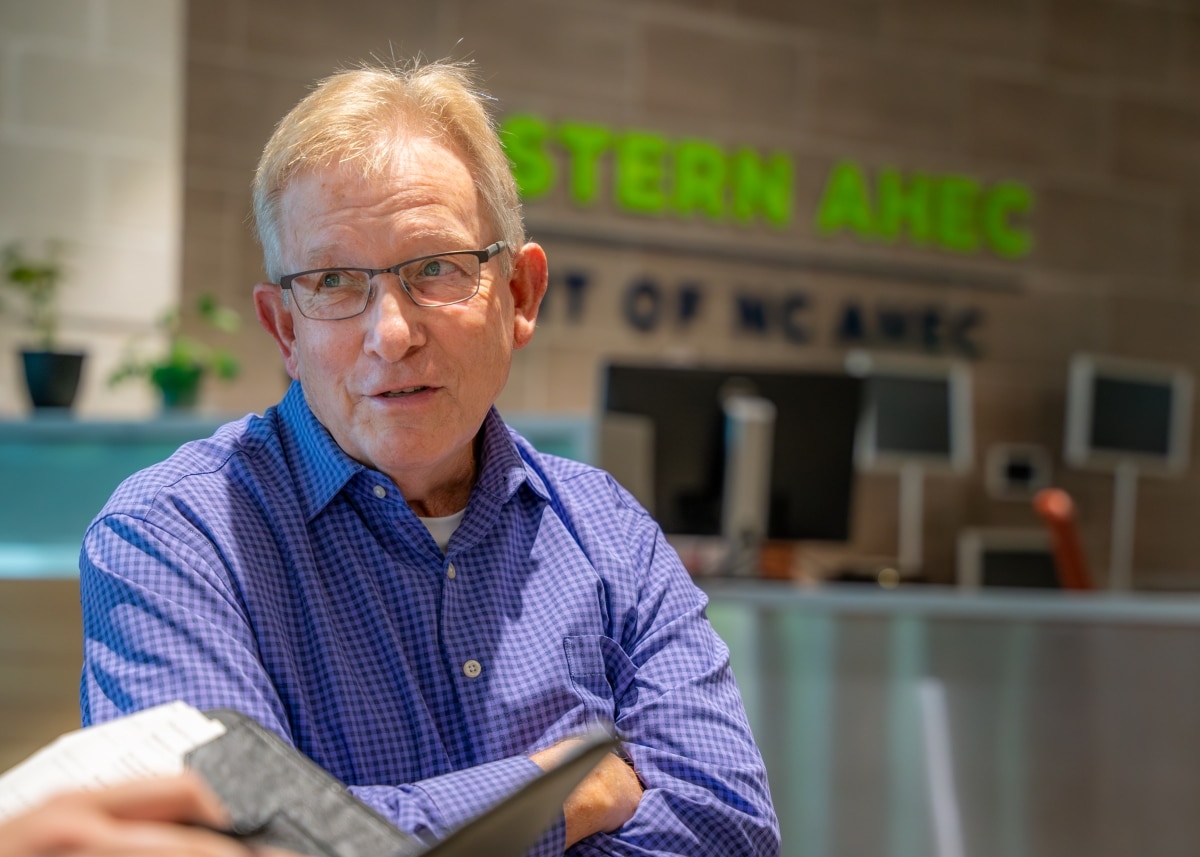When Dr. Tate Holbrook, a pediatric hematologist, founded the Comprehensive Sickle Cell Disease Program at East Carolina University in 1979, he was inspired by the need for basic health care services specifically designed to meet the unique needs of sickle cell patients.
Now, 45 years later, the program stands proudly as a leader in North Carolina at providing state-of-the-art medical care for those living with sickle cell disease, and its founder credits the annual Tate Holbrook Annual Sickle Cell Disease Update conference as a key component of that success.
“ECU has a reputation as being a hands-on, compassionate and people-centered organization,” said Dr. Holbrook, who the conference was named after following his retirement in 2022. “The care at ECU Health Medical Center is exceptional and it’s because of the people who really care. This conference is a big cooperative effort that brings like-minded people together such as researchers, pharmaceutical companies, and others who are helping create advancements in treatment for sickle cell patients.”

The Tate Holbrook Annual Sickle Cell Disease Update is hosted by East Carolina University’s Comprehensive Sickle Cell Program and the Department of Pediatrics Hematology/Oncology, in collaboration with Eastern AHEC. The goal of the conference is to bring together medical professionals and patients to bridge the gap of communication and to improve treatment for patients with sickle cell disease.
To meet this goal, professionals with knowledge and recognition in the sickle cell community discuss the latest advances in treatment of sickle cell disease, cutting edge research, established and new medications and therapies, as well as psychosocial interventions. Conference organizers aim to encourage further discussion between providers and patients to create an environment focused on patient needs.
The most recent conference was hosted at Eastern AHEC on Sept. 6 and brought together medical professionals with 25 patients and six community-based vendors together to learn in a collaborative environment and provide resources to those living with sickle cell disease.
“I’ve come to this conference every year since 2009 when I retired and moved down here,” said Stephanie King, 70, who lives with sickle cell disease. “I think people with the disease should come to these types of events because there’s so much to learn about sickle cell. I go places and I speak about my experience and I have young people that come up to me and say ‘Oh my gosh, you can live this long with sickle cell disease?’ and I always say ‘Yes!’ With medical enhancements and the resources available, we can make it to 70 and beyond.”
Patients like King are at the heart of the conference. The concept of collaborative comprehensive care helps provide state of the art medical care for patients, including education of families and health care providers, psychosocial support to patients, families and community groups, and access to new and innovative therapies. It also emphasizes a close working relationship with other agencies involved in the care of individuals with hemoglobinopathies, including medical centers, community-based sickle cell programs, and the NC Sickle Cell Syndrome Program.
The collaborative approach is what drives progress forward for those living with sickle cell disease, according to Dr. Beng Fuh, current program director of the Comprehensive Sickle Cell Disease Program at ECU.
“One of the most important parts of this conference is that it brings patients with sickle cell together with medical providers,” said Dr. Fuh. “We get to facilitate that exchange between patients and providers to learn how we can improve things and how we can get better. Sickle cell functions best when we take that collaborative approach. When we can hear from each other, we make our providers better and we improve understanding of the disease for patients. When we’re here together we gain a greater appreciation for the fact that we’re all on the same team.”